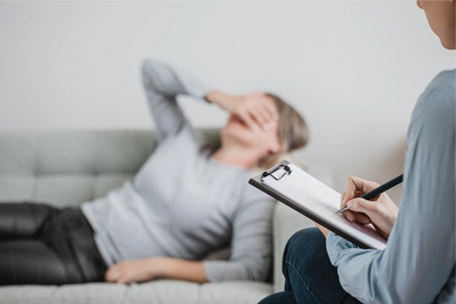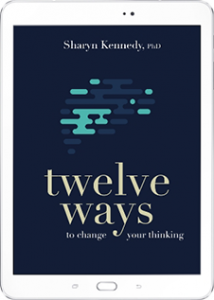This website uses cookies so that we can provide you with the best user experience possible. Cookie information is stored in your browser and performs functions such as recognising you when you return to our website and helping our team to understand which sections of the website you find most interesting and useful.
How To Treat Anxiety And Live Better

How To Treat Anxiety And Live Better
You want to live a better life. Here’s how.
If you are experiencing an emergency, contact emergency services to get help immediately.
If you are not currently experiencing an emergency, contact a mental health professional that deals with anxiety. You will not be able to make your anxiety go away by sheer force of will. You will need professional help. If you think there is even a remote chance that you need professional help, consult a professional.
Prevention
It may take a while to get an appointment with an appropriate mental health professional. While you’re waiting, or in between appointments, there are things you can do to reduce the likelihood of anxiety attacks:
- Maintain regular sleep patterns
- Eat a balanced diet
- Reduce or eliminate consumption of caffeine, tea, soda, and chocolate
- Avoid alcohol, cannabis, and recreational drugs
- Check with the pharmacist before taking over-the-counter remedies or herbal supplements.
- Download and read our free e-book 12 blah blah blah and practice breathing while things are calm.
Medications
Some medications can help alleviate symptoms in the short term. They include classes of drugs called tricyclics, benzodiazepines, beta-blockers, MAOIs, SSRIs, and buspirone.
All medications have some side effects, sometimes significant ones. Also, while these medications can provide relief from symptoms, they do not address the root cause of your anxiety. They target the triggers and effects of your anxiety, but not the processes in the brain that cause it.
The Root Cause
The root cause of your anxiety is a habit your brain has formed of taking everyday anxieties and pouring them into a negative feedback cycle that turns them into something crippling.
You cannot eliminate triggers from your life. Anxiety-inducing moments are all around us. Neither can you simply damp down the symptoms forever.
The only long-term treatment that works is to address that root cause. It’s to re-train your brain so that when you feel anxiety, your brain doesn’t automatically make it worse and worse until it’s debilitating.
That process is called CBT or Cognitive Behavior Therapy, and with the help of a mental health professional, you’ll be able to use CBT to reprogram your brain and eliminate that negative feedback loop.
You won’t be avoiding triggers or masking symptoms; you’ll be addressing the root cause of your problems. It’s the only long-term solution that can have you living your best life.
CBT is not a quick fix, so your mental health professional may put you on medication so you can function while you develop your skills with CBT.
Cognitive Behavior Therapy
That spiraling feeling you’ve felt before is your brain’s habitual reaction to anxiety-inducing situations. CBT is the process of breaking that habit and replacing it with better ones.
Changing habits is neither quick, nor easy, and that’s particularly true of habits we don’t even recognize as habits. When you’re using CBT, you’re rewriting the way your brain thinks. It sounds like science fiction, but it’s incredibly powerful.
You have two brains. Your lizard brain is in charge of habits and reactions. Your conscious brain is in charge of focus and reflection. Your conscious brain is open to new information. Your reptilian brain isn’t.
When you feel anxiety coming one—that regular everyday anxiety we all feel—your reptilian brain is going to apply the same old habits that lead to a downward spiral. You can use your thinking brain to interrupt that habit. If you do it often enough for long enough, you’ll break that habit and develop a new one.
It’s not easy, and it’s not fast, but it’s the only thing that works long-term.
What CBT Looks Like
Your thinking brain can only interrupt your reptilian brain when it recognizes something is headed into that downward spiral. That’s obvious, right? But that means you have to put your thinking brain in a position to recognize the thoughts and feelings that are passing through your lizard brain all the time.
That’s called Mindfulness and it takes a lot of practice.
When a new feeling of anxiety comes in, you’ll want to derail it instead of allowing it to continue into a downward spiral. You won’t always succeed, but the more you practice, the better you’ll get.
First, you’ll want to recognize the thoughts or feelings. Simply denying them doesn’t make them go away. Acknowledge to yourself that you’re anxious about an upcoming meeting, or afraid that you’re going to make a fool out of yourself if you go drinking with friends.
Acknowledge the thought or feeling for what it is. Then decide what to do with it. There are several things you can try:
- You can push it aside and continue with what you were doing. Imagine driving to work when you feel uncertain about an upcoming meeting. You can recognize your uncertainty for what it is and tell it to step aside because you’re busy driving.
- You can have a friendly conversation with yourself. If you’re worried that a project you worked on might not be perfect, you can remind yourself that perfection is largely unattainable, that you worked hard, and that you’re good at what you do. Your boss or client is probably going to be delighted.
- You can treat yourself like your best friend. If your best friend were feeling the way you do, what would you tell them? Tell that to yourself, and recognize that it’s true.
- Sit with your thoughts and feelings. Stop working. Stop playing. Stop whatever it is you’re doing and sit somewhere quietly and let yourself feel. Treat it like it’s a passing train or a television show. You’re watching it. You’re engaging with the feelings, but you’re not letting them run the show.
- Take a mindfulness moment, a breathing moment, or go to your safe space. These require some preparation, so they’re not something you can do immediately, but with practice, all of these techniques are a tremendous way to reset your brain and your feelings so you can skip that downward spiral.
The Way Forward
Anxiety didn’t become a problem overnight, and it’s not going to be resolved overnight. It’s a process, and here’s where you can start.
- If you’re in an emergency, call emergency services to get help ASAP.
- Schedule an appointment with a mental health professional for an assessment.
- Download and read the free e-book and try some of the techniques. Don’t try them all at once. Pick one or two for starters. If you try breathing, make sure you practice anxiety-free several times before using it to address an attack.
- Purchase and read the paid e-book. It’s not a replacement for therapy, but it will give you a head start by putting you on the same page as your therapist.
- Like and Follow the Facebook page for regular updates, techniques, and news about an upcoming online course that will get you started from the privacy of your home for much less than the cost of regular therapy.





